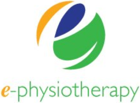Hip pain can be caused by a number of problems. Weakness in the hip extensor (Gluteus Maximus) muscles or hip abductors (Gluteus Minimus) and external rotators (Piriformis) can cause hip pain. This weakness can lead to gluteus medius and minimus tendinopathy (tendinitis). Treatment of this always involves strengthening the hip muscles and improving your balance (proprioception). It will often involve using extracorporeal shock wave therapy (ESWT) as this helps the tendons to heal, but some people find this is too painful, so instead ultrasound, interferential and acupuncture/dry needling can be helpful to reduce the pain, which will make your strengthening and proprioceptive exercises easier. Manual therapy such as joint mobilisations, myofascial release and muscle energy techniques can also help with your rehabilitation.
Degenerative changes in the hip joint can cause hip pain. It is important to remember that many people have degenerative changes (arthritis) in their joints but do not have pain. It is thought that those people without pain have stronger and more flexible muscles around the joint. Associated with degeneration and weakness is hip bursitis. A bursa is a fluid filled sack that helps to separate your muscles tendons and bones, and reduce friction during movement. The inflammation and swelling can be reduced with treatments such as ulstrsound, interferential, laser therapy and acupuncture/dry needling. If this does not reduce the pain and swelling adequately, a consultant opinion and steroid injection may be requuired. Persistent hip pain that does not respond to physiotherapy should be seen by an orthopaedic surgeon for an opinion as there may be an internal hip joint problem that can be corrected surgically. Non-arthritic examples of this may be femoroacetabular impingement (FAI) or labral tears.
Hip pain may be referred from the lumbar spine (lower back). It is important to be assessed by a physiotherapist to differentiate if your pain is from your hip or lower back.
For other hip issues, the physiotherapy treatment will depend on what is causing the problem but may include muscle energy techniques on the pelvis, hip and lumbar spine, myofascial release, strengthening exercises, and proprioceptive exercises. If you are having hip pain, book an appointment with e-physiotherapy Edinburgh.

